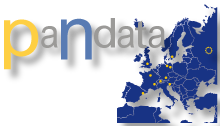Software
EXtra-data
A Python library for accessing and inspecting data in European XFEL's HDF5 files. European XFEL saves data in multiple HDF5 files with a moderately complex structure. EXtra-data aims to provide a simple interface to access data from a run directory, and conveniently work it in popular Python libraries such as Dask, Xarray and pandas.
EXtra-geom
Python tools to work with geometry information for multi-module detectors at European XFEL, and to use assemble detector data into images.
h5glance
H5Glance lets you conveniently explore HDF5 files in the terminal or an HTML interface, including in Jupyter notebooks.
McStasScript
McStasScript is a python API for the popular neutron scattering instrument simulation tool McStas. The python API allows users to construct instrument objects describing the desired beam line, run simulations and plot the results. All data is available as bumpy arrays.
QENS library
This library provides different building blocks that users can combine, convolute and plug in different frameworks for visualizing or fitting Quasi Elastic Neutron Scattering (QENS) data S(Q, omega). It was developed as part of SINE2020 Workpackage 10 on Data Treatment to develop an exhaustive library of dynamical models in order to increase interoperability and modularity for a rapid prototyping. The models are written in Python for easy integration in workflows. In order to help users, a few examples of data analyses using different standard fitting engines (lmfit, scipy, bumps) are provided as Jupyter notebooks5. Tools are also provided to help those interested in contributing to the project by adding models or sharing examples of data treatment. This project has received funding from the European Union’s Horizon 2020 research and innovation programme under grant agreement No 654000.
xraylib
Quantitative estimate of elemental composition by spectroscopic and imaging techniques using X-ray fluorescence requires the availability of accurate data of X-ray interaction with matter. Although a wide number of computer codes and data sets are reported in literature, none of them is presented in the form of freely available library functions which can be easily included in software applications for X-ray fluorescence. This work presents a compilation of data sets from different published works and an xraylib interface in the form of callable functions. Although the target applications are on X-ray fluorescence, cross sections of interactions like photoionization, coherent scattering and Compton scattering, as well as form factors and anomalous scattering functions, are also available. xraylib provides access to some of the most respected databases of physical data in the field of X-rays. The core of xraylib is a library, written in ANSI C, containing over 40 functions to be used to retrieve data from these databases. This C library can be directly linked with any program written in C, C++ or Objective-C. Furthermore, the xraylib package contains bindings to several popular programming languages: Fortran 2003, Perl, Python, Java, IDL, Lua, Ruby, PHP and .NET, as well as a command-line utility which can be used as a pocket-calculator. Although not officially supported, xraylib has been reported to be useable from within Matlab and LabView. The source code is known to compile and run on the following platforms: Linux, Mac OS X, Solaris, FreeBSD and Windows. It is very likely that xraylib will also work on other platforms: we would be grateful if you would report your successes in this regard. Please note that not all of the bindings are currently working on all platforms. A paper was published concerning xraylib by A. Brunetti, M. Sanchez del Rio, B. Golosio, A. Simionovici and A. Somogyi, “A library for X-ray matter interaction cross sections for X-ray fluorescence applications”, Spectrochimica Acta B 59 (2004) 1725-1731. This paper was recently superseded by a new manuscript, covering all features of xraylib upto version 2.15.0, written by T. Schoonjans, A. Brunetti, B. Golosio, M. Sanchez del Rio, V. A. Solé, C. Ferrero and L. Vincze, named "The xraylib library for X-ray—matter interactions. Recent developments". You are kindly requested to include this paper in the reference list of your published work when you would decide to use xraylib for scientific purposes.
- ← Previous
- 1
- Next →

